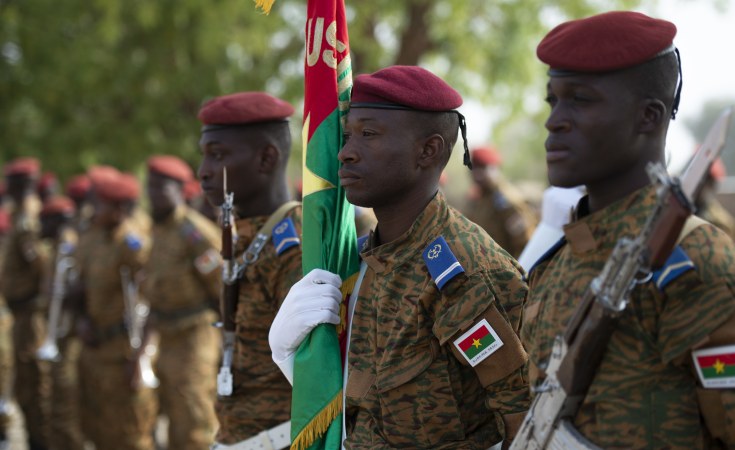The President of Found Foundation, Darren Walker, said the majority of young people in Africa endorse military interventions if democratically elected leaders fail to deliver on their promises.
Mr Walker, who credited his submission to the latest research findings from Afrobarometer stated this in his address at the State of Democracy in Africa Summit held on 22 May in Abuja.
Afrobarometer is a non-profit pan-African, non-partisan survey research network that conducts public attitude surveys on democracy, governance, the economy, and society.
The Democracy in Africa summit was co-convened by the Olusegun Obasanjo Presidential Library and Shehu Musa Yar'adua Foundation.
Some West African countries like Burkina Faso, Niger and Mali have witnessed military coups in the past few years, with the military leaders appearing to enjoy support from their country's population.
Mr Walker, who described inequality as the enemy of democracy, said participatory democracy will not only empower citizens to create a society that is more inclusive and just but also holds the power to create prosperity for more people, drive investor confidence and increase economic stability.
He, therefore, urged the people of West Africa to reaffirm their commitment to the principles of peaceful and participatory democracy which focuses on the voices of the people and respect for their rights and freedoms.
Mr Walker said, "Today the people of West Africa paint a clear picture of gathering crisis; where minority groups and other vulnerable communities face threats to their rights and existence, authoritarian governments gaining more power and the majority of the youth being disillusioned that they will endorse military intervention if democratically-elected leaders fail to deliver on their promise.
"However, we know that within these threats lie the seeds of democracy's salvation - the people."
He said that throughout African history, ordinary people have demonstrated the potential to hold leaders and institutions accountable.
He emphasised the importance of expanding democratic and civic spaces for citizens' voices to be included in defining the norms for the governance of their countries.
Obasanjo's remark at the summit
In his keynote address at the summit, former President Olusegun Obasanjo emphasised the need for African countries to prioritise solutions tailored to the unique socio-political and cultural context of the continent to strengthen democracy in the region.
Mr Obasanjo said the current democratic scene in the region seems to be an "oscillating success, riddled with troubling resurgence of military coups and democratic governance often interspersed with authoritarian rule."
According to him, the condition is further worsened by external pressures from Western, Russian and Chinese interests.
Call for patience, understanding
Vice President Kashim Shettima represented President Bola Tinubu at the summit.
In his address, Mr Tinubu said that regional integration and intra-Africa trade through sub-regional blocs like the Economic Community of West African States, East African Community and Southern African Development Community and the African Continental Free Trade Area were vital to delivering accelerated economic development and to deepen democracy across Africa.
Also speaking, the Regional Director, Ford Foundation, Office of West Africa, ChiChi Aniagolu-Okoye emphasised the importance for African countries to be courageous and fight for a more sustainable form of democracy and be willing to deal with setbacks encountered along the way.
"It was very encouraging for me to hear from the Afrobarometer that Africans want democracy. But we also learnt that democracy is a process and not an event, so it is important that we recognise that though we have setbacks, they are part of the process of growth. So that we can be a little bit more patient, more understanding, more resistant and resilient as we fight for the Africa we want."


